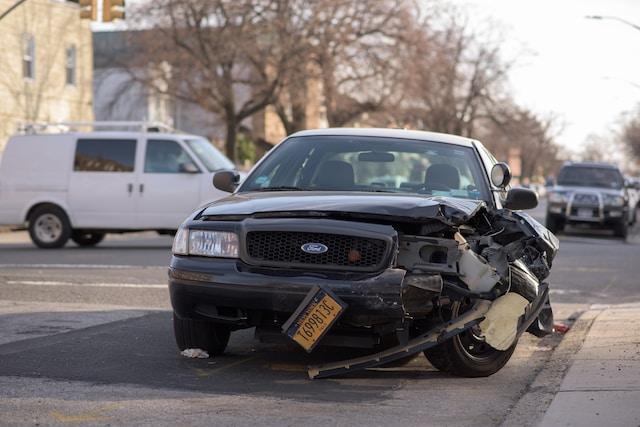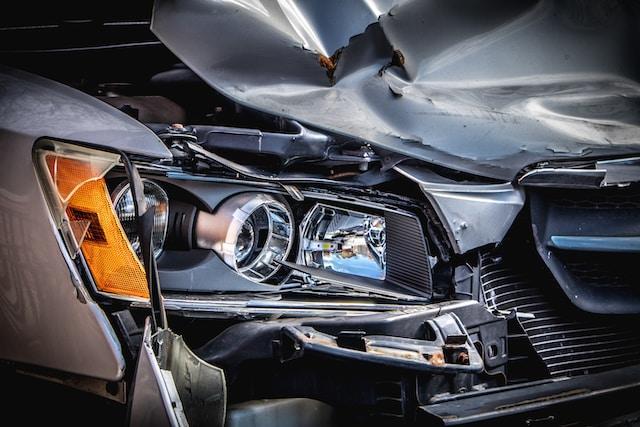Collision Coverage-Insurance Definition and Legal Meaning
Our product recommendations are made independently, but we may earn affiliate commissions if you use a link on this page.
What is Collision Coverage/Insurance?
Collision coverage/insurance is vehicle coverage that is often an add-on to your regular auto policy. This type of insurance can help you pay for damages in the event an accident occurs with another vehicle or object such as a tree or telephone pole.

Purpose and Meaning of Collision Coverage/Insurance
When it comes to purchasing an auto insurance policy, there are many factors that you will need to consider. These factors are partially dependent on whether or not you own the vehicle outright or are leasing or financing it.
If you have purchased a vehicle and are currently making payments on it, then you are likely required to have collision coverage/insurance. This is because the financing company will want to ensure that the vehicle is covered in the event of an accident since it protects its assets.
However, if you own a vehicle outright, you typically have the option to purchase collision coverage/insurance. While you have the option to add this to your policy, most experts agree that it is something you should have to protect you from major out-of-pocket expenses.
Collision coverage/insurance helps to cover expenses in a wide variety of situations such as single-car collisions, accidents involving other vehicles, and accidents involving hitting a tree or other object. Since anything is possible, it is better to have this type of coverage to ensure that you can get help when you need it.
A single-car collision that would be covered by your collision insurance would be if you had a situation arise where your car is the only one in an accident. This is typically when you are involved in a rollover accident.
Collision coverage also kicks in when you are involved in an accident with another person whether the incident is deemed to be your fault or not. This means that even if you receive a citation saying that you caused the accident, your collision policy will still cover the expenses on the vehicle.
It is important to note that most of these policies come with an option to choose the amount of the deductible. For most insurance companies, the deductible can be any amount from $0 to $1000 or more. Keep in mind that the amount of the deductible you choose will directly affect your monthly premium.
Overall, when it comes to collision coverage/insurance, most experts agree that it is an additional policy that most people should consider adding to their policy. This is because collision insurance is designed to help cover various expenses you may incur in the event you have an accident, whether or not it was your fault.

Examples of Collision Coverage/Insurance
- A person parks their car legally on the street next to a curb and upon returning to it, they discover that it has been hit by something. Whether or not the person stuck around to tell them, the collision insurance will kick in to cover the damage.
- A person is driving in a rain storm and hit the brakes too quickly causing them to swerve or even hydroplane into a tree or telephone pole. The damage to the vehicle will be covered by the collision policy.
- An individual makes a turn on a yellow light not paying attention to the oncoming car already in the intersection causing a crash. Even though the accident is the fault of the first individual, their collision policy will help to cover the damage, minus the deductible.
- An individual driving down a road hits a pothole that was not seen in time to avoid it causes damage to the vehicle’s tires and body. This is another instance where the collision policy will kick in to cover the damage.
Legal Terms Associated with Collision Coverage/Insurance
- Deductible: This is the amount of money an insured driver will pay out-of-pocket for the repair bill before the insurance policy kicks in to cover the rest.
- Depreciated value: This is the value of your vehicle after all factors have been considered. This typically means that once your car leaves the dealership, certain factors are not worth as much as they were before due to the standard wear and tear of a vehicle that is used.
- Comprehensive insurance: This type of insurance covers things that are beyond the control of the driver such as acts of nature and more. Some of these factors include hail, storms, hitting a deer, car theft, and more.
Reference Legal Explanations
If you use any of the definitions, information, or data presented on Legal Explanations, please copy the link or reference below to properly credit us as the reference source. Thank you!
-
<a href="https://legal-explanations.com/blog/collision-coverage-insurance-definition-and-legal-meaning/">Collision Coverage-Insurance Definition and Legal Meaning</a>
-
"Collision Coverage-Insurance Definition and Legal Meaning". Legal Explanations. Accessed on December 15, 2024. https://legal-explanations.com/blog/collision-coverage-insurance-definition-and-legal-meaning/.
-
"Collision Coverage-Insurance Definition and Legal Meaning". Legal Explanations, https://legal-explanations.com/blog/collision-coverage-insurance-definition-and-legal-meaning/. Accessed 15 December, 2024
-
Collision Coverage-Insurance Definition and Legal Meaning. Legal Explanations. Retrieved from https://legal-explanations.com/blog/collision-coverage-insurance-definition-and-legal-meaning/.